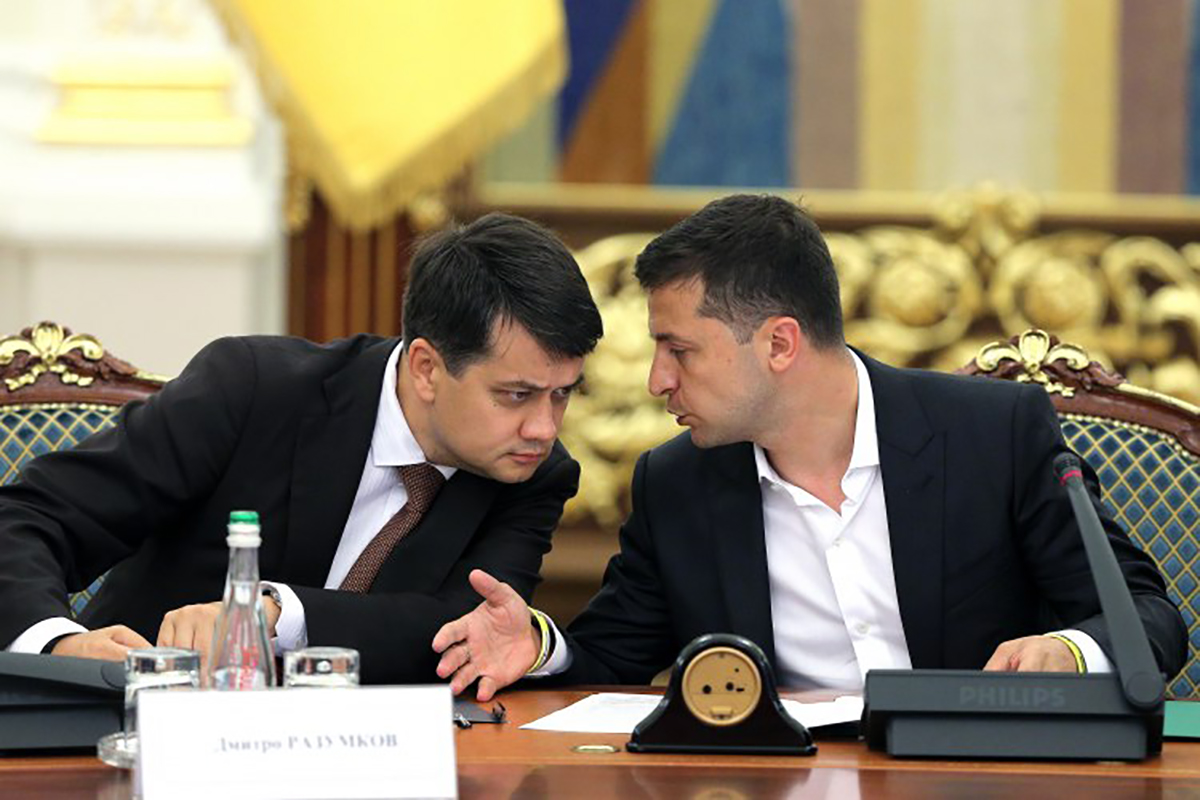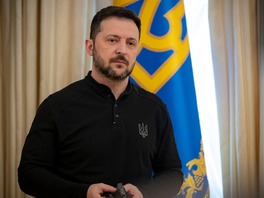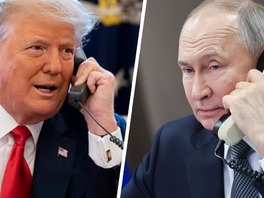President Volodymyr Zelensky and his team have initiated a number of socially important reforms that should give impetus to the economic development of the country. But the president's team often ignores one of the key aspects of implementing real and effective reforms - conducting in-depth discussions with all interested stakeholders and society. Without the authority’s will to carry out reforms, an opposite effect will take place - failure of reforms, public protests and delegitimization of power. Ukrainian officials urgently need to introduce European practices in public consultation and stakeholder negotiations.
The neglect by the authorities of the interests of business and/or society is already evidenced by the five legislative initiatives: reform of local self-government, the opening of the land market, changes in labor law, legalization of gambling and regulation of media activity.
Land reform
On November 13, 2019, the Verkhovna Rada voted for the bill 2178-10 in the first reading which abolishes the ban on the sale of agricultural land. Voting was accompanied by interruptions and numerous speeches by people deputies. Rallies of political forces and public organizations were held in front of the Verkhovna Rada. The opposition demanded a referendum on the sale of land before passing a law on the land market for a parliamentary voting. However, despite such opposition, the decision was supported by 240 people's deputies (227 SOP and 13 non-fractional). This bill provides:
● lifting the ban on the sale of agricultural land from 1 October 2020;
● the opportunity to buy land for Ukrainian individuals, companies, territorial communities and state, as well as legal entities the ultimate owners of which are foreigners and have been renting land in Ukraine for more than three years;
● the right to acquire land from January 1, 2024, for those foreign companies that have been engaged in land cultivation in Ukraine for at least three years;
● preferential right of the lessee to purchase land;
● determination of ownership concentration of land at the level of 35% UTC, 8% of the region and 0.5% of the country (about 200 thousand hectares);
● sale of state and municipal property at auction (starting sale price - the normative monetary evaluation).
Currently, the bill prepared by the Agricultural Committee for a second reading. After finalization, it provides:
● the right for foreigners to buy only after the referendum;
● Ukrainian citizens and legal entities founded exclusively by Ukrainian citizens have the right to buy land;
● one-hand limit - 10 thousand hectares. There are no restrictions on related party;
● banks can become owners of the land, but only by collecting collateral for non-payment of the loan. Banks must sell the land received as collateral within 2 years.
All banks have the right to credit the land, regardless of the ownership. That is, banks with foreign capital can lend, receive land as collateral, but have to sell it. If the banks do not sell the land for two years, the land is confiscated on a disgraced basis. The state exposes the land for sale, collects costs, and returns the rest to the bank.
Given the response that raises the land issue among Ukrainians and opposes of the opposition and many farmers, voting for this bill in the second reading will not be easy. More than 4 thousand amendments have already been submitted to the bill. In addition, this issue has become hostage to the game of some oligarchic circles in Ukraine, which want to misuse it for the sake of resolving their narrow group interests. The most important of which is Igor Kolomoisky, who is thus trying to put pressure on the president, trading favours.
The land topic is very sensitive for Ukrainians, because over the years of independence, many myths have emerged that are used by politicians to intimidate society and gain electoral points. To concur this, authorities that wish to open up a civilized agricultural land market shoulddebunk the myths, translate the discussion into a rational field through an appropriate public awareness campaign and conduct consultations with all stakeholders. Such a strategy would reduce social tension and create support groups for this reform. However, the presidential team decided to do it differently: behind-the-scenes arrangements and minimal information. As a result, there’s been a split in the SOP, a favorable ground for the opposition’s policy has been created, and all hope for a rational debate has been lost. Due to the lack of wide consultations and public debate on this topic, important points remain to be answerred:
- introduction of a transitional period during which strict requirements for buyers of agricultural land and purchase and sale agreements would apply;
- establishing a number of requirements for individuals and legal entities to be able to purchase agricultural land, for example: а) for individuals - education of the relevant direction, availability of experience in agriculture, availability of farming, providing a reasonable plan of agricultural activity on the land that such a person has expressed a desire to purchase; b) for legal entities – giving a reasonable plan of agricultural activities on the land, which the entity was willing to buy;
- a clear definition of the range of entities that have priority in the purchase of agricultural land, for example, tenants, local residents, persons to whom the land belongs according to the right of permanent and lifetime use, the owners of neighboring land;
- prohibition on change of purpose of agricultural lands;
- restrictions on the sale of agricultural land for several years;
- the obligation of buyers to provide a plan for maintaining and restoring the quality of soils within the land they buy, with further state control over compliance with this plan and identifying trends for their improvement or deterioration over several years;
- adopting a clear and transparent legal mechanism for state control over the implementation of agricultural land purchase and sale agreements in accordance with established restrictions (at least during the transitional period);
- state incentives for the use of “friendly” soil-based farming methods and giving priority to the purchase of agricultural land by entities that will adhere to such methods;
- regulation of tax relations during the conclusion of the agreement on the purchase and sale of agricultural land and reduction of tax burden during the further use of such land for the intended purpose;
- holding an inventory of agricultural land in Ukraine.
Local government reform (decentralization)
The reform of the local self-government system (on decentralization), initiated by the previous authorities, needs to be completed in a way that makes sense. Volodymyr Zelensky's team has undertaken the necessary steps to amend the Constitution of Ukraine accordingly. This created an opportunity for Zelensky’s team to analyze the experience already gained from previous years of implementation of this reform, to conduct thorough consultations with local authorities in the UTC, business representatives and the community, to form a viable and effective concept of decentralization. This would be real proof that the policy in Ukraine has changed in a qualitatively different direction. In addition, it would be an additional argument for those local communities who, for one reason or another, oppose the unification of their settlements.
Instead, the “Servant of the People” party has repeated the same mistakes of the previous government. The process of preparing this reform was conducted in a semi-closed regime, the result of which was the presidential bill №2598, which provides no real guarantees for the rights and autonomy of local communities.
The result of a closed and non-inclusive process in drafting the law on decentralization was the lack of support for this initiative by representatives of local communities, regional elites, opposition forces in parliament, and even a large part of the members of the SOP faction. This caused the authorities to simplynot have the necessary 300 votes to pass this law in the second reading. The final drop, which forced President Zelensky to agree to withdraw his bill No. 2598 from parliament, was his criticism of Ukraine's international partners, who have supported the reform since its implementation. Only then the authorities in Ukraine agreed that drafting this bill would only be possible in through discussion with all interested stakeholders.
The development of the decentralization concept, which should be enshrined in the Constitution without taking into account the interests of the communities themselves, simply makes no sense. Ignoring the experience of local councils in UTC has the consequence that the current concept of decentralization does not satisfy the interests of local communities. First and foremost, it concerns the introduction of a prefect institute to be appointed by the president. It is clear that the grounds for motivating this decision are directly opposite to true decentralization, which should be based on autonomous and financially viable communities. The right to rename the streets and settlements is perfectly fine, but what would be the point if the communities had insufficient funds to maintain educational and medical infrastructure
Legalization of the gambling industry
Legalization of the gambling industry in Ukraine was one of the priorities of Volodymyr Zelensky`s team, and was something that was publicly promised to voters during the election campaign. This initiative is long overdue in the country, because despite the legal ban, gambling establishments can be found in almost every corner of Ukrainian cities. The legal framework for this is formed with the help of licenses of the national lottery, and the actual problems are solved by law enforcement agencies for corruption rents. The state budget, according to the chairman of the Verkhovna Rada Committee on Economic Development Dmytro Natalukha, has received about UAH 30 billion annually, and consumers of these services have no guarantees of protection of their rights.
Given this situation and the political will, the government had to create a clear and transparent legislative framework that would allow to bring the gambling business out of the black market. This required consultation with all interested stakeholders and the community. Instead, the government conducted consultations only with the bookmakers, which was reflected in the bill. Representatives of other segments of the gambling business (casinos, slot machines, poker, lotteries) began to lobby for their draft laws, and the public interest was not considered a priority of legislative regulation.
Lobbying by different stakeholders of their own bills has led to a lack of votes in each of the eleven alternative bills during the voting in the parliamentary hall. President Zelensky decided to act by force and instructed law enforcement officers to stop illegal gambling establishments. The result of the ill-considered legislative process was: the actual failure of the legalization of gambling, the continued under-receipt of funds by the state budget, and the gambling establishments themselves continue to operate in the shadows. Only on January 16, 2020, the Parliament, in the first reading, approved the bill 2285-d, which maintains the balance of business interests. But the state lost time again due to lack of communication and wide consultation.
The bill on media
The most controversial legislative initiative of the authorities is the bill No. 2693 “On media”. According to the authors of the bill (Olexandr Tkachenko, etc.), the new legislative framework should adapt the legal field to European standards. Much attention is particularly paid to strengthening Ukraine's position in countering hybrid aggression from the Russian Federation in the information sphere. Thus, according to the text of the draft law, individuals and legal entities from the Russian Federation are prohibited from owning or financing media in Ukraine. But the bill has a number of other "fuses" that have caused reasonable concern for Ukrainian journalists.
The current wording of the draft law gives too much power to the National Council for Television and Radio Broadcasting (hereinafter referred to as the National Council), which actually borders on the arbitrariness and violation of the basic principles of the Constitution of Ukraine. In particular, the National Council has the right to approve and update the "List of Persons Threatening the National Media Space of Ukraine" for which only criminal proceedings have been opened for committing crimes against national security, crimes against peace, humanity and international law. This provision of the bill is a direct violation of the principle of the presumption of innocence, which is guaranteed by the Constitution of Ukraine. In addition, there is no guarantee that the listing of individuals, including journalists, will not occur on a political basis.
In the context of the hybrid aggression of the Russian Federation against Ukraine, public authoritiesneed to look for effective mechanisms to counter threats in the information sphere. But the legal framework should not violate the right to free speech, let alone the presumption of innocence. At the moment, this bill keeps the journalists in a state of excitement, which justifiably fears the introduction of state censorship and influence on their work by the authorities. The development of an effective legislative framework for media law should take place in a close debate between authorities and journalists, resulting in a compromise that would provide the state with the means to counteract information threats but would not create the risk of censorship in the media.
The first period of the new government showed strong political will to reforms implementation. Volodymyr Zelensky's team tackled a wide range of problematic issues in our country, reflecting society's expectations of the new government. But the desire to adopt a series of systemic reforms in the "turbo mode" fails. The main drawback to the success of the state reform is the strategic mistakes in communication. In order to solve complex problems effectively, it is just necessary to hold full and thorough consultations with the public and all interested stakeholders. Of course, this takes time, much of which has already been squandered in previous years, but it must be understood that the issue of the success of any reform is finding a compromise solution that satisfies all, or most, stakeholders and society. Otherwise, decisions will simply not be enforced or sabotaged, which underscores the appropriateness of any decision made. Presentation of "ready-made solutions" in an information vacuum is a great environment for spreading fakes and conspiracy theories for every taste. All this ignites a quarrel between supporters of different political forces. In a consolidated country, there is simply no place to divide into "Zelensky" and "Poroshenko", but there is an "authorities - civil society - business" connection, which conducts constructive dialogue in search of the most effective solutions. Therefore, the principle of "finding a middle ground" should also be implemented in Ukrainian politics.





